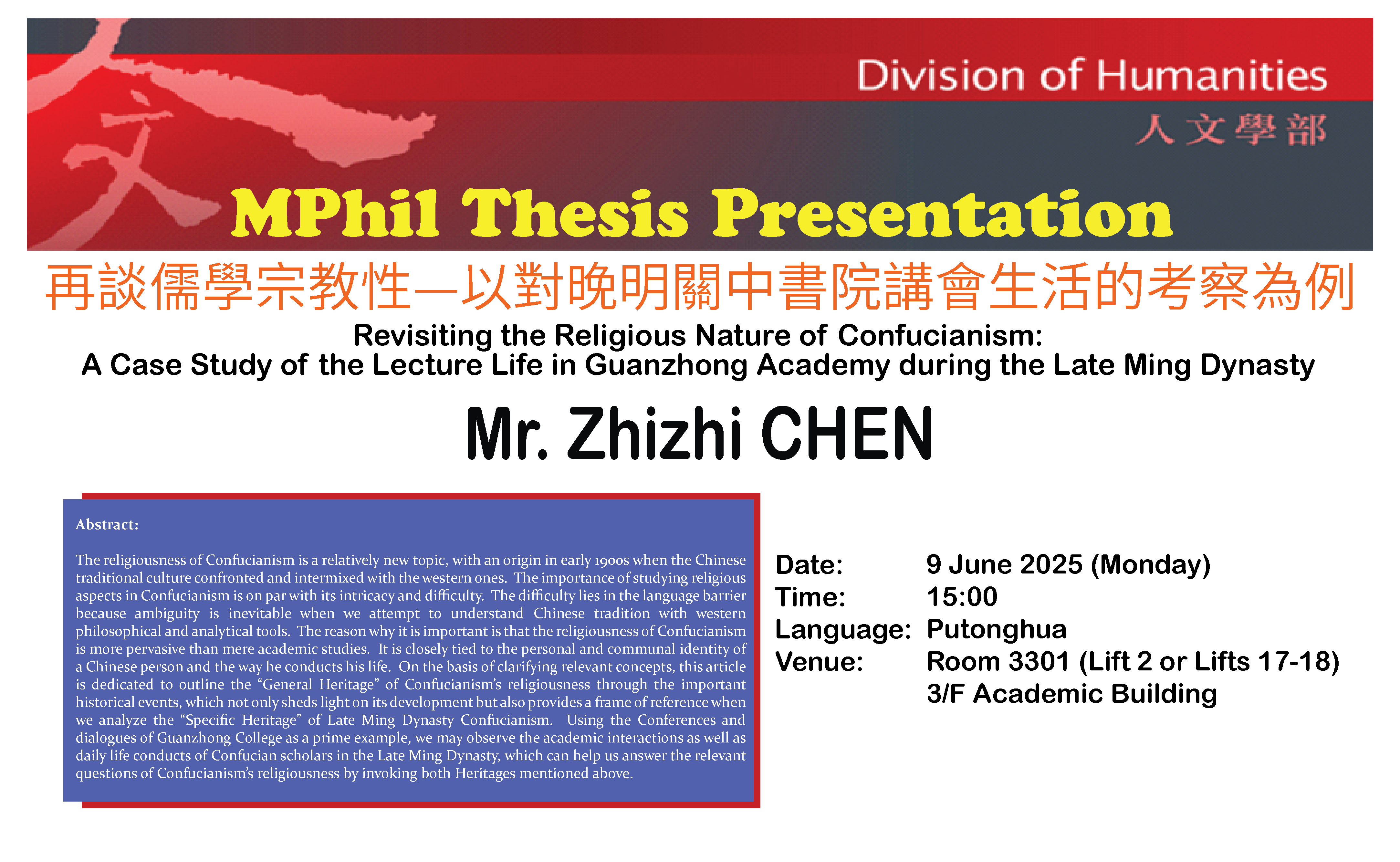Abstract:
The religiousness of Confucianism is a relatively new topic, with an origin in early 1900s when the Chinese traditional culture confronted and intermixed with the western ones. The importance of studying religious aspects in Confucianism is on par with its intricacy and difficulty. The difficulty lies in the language barrier because ambiguity is inevitable when we attempt to understand Chinese tradition with western philosophical and analytical tools. The reason why it is important is that the religiousness of Confucianism is more pervasive than mere academic studies. It is closely tied to the personal and communal identity of a Chinese person and the way he conducts his life. On the basis of clarifying relevant concepts, this article is dedicated to outline the "General Heritage" of Confucianism's religiousness through the important historical events, which not only sheds light on its development but also provides a frame of reference when we analyze the "Specific Heritage" of Late Ming Dynasty Confucianism. Using the Conferences and dialogues of Guanzhong College as a prime example, we may observe the academic interactions as well as daily life conducts of Confucian scholars in the Late Ming Dynasty, which can help us answer the relevant questions of Confucianism's religiousness by invoking both Heritages mentioned above.
